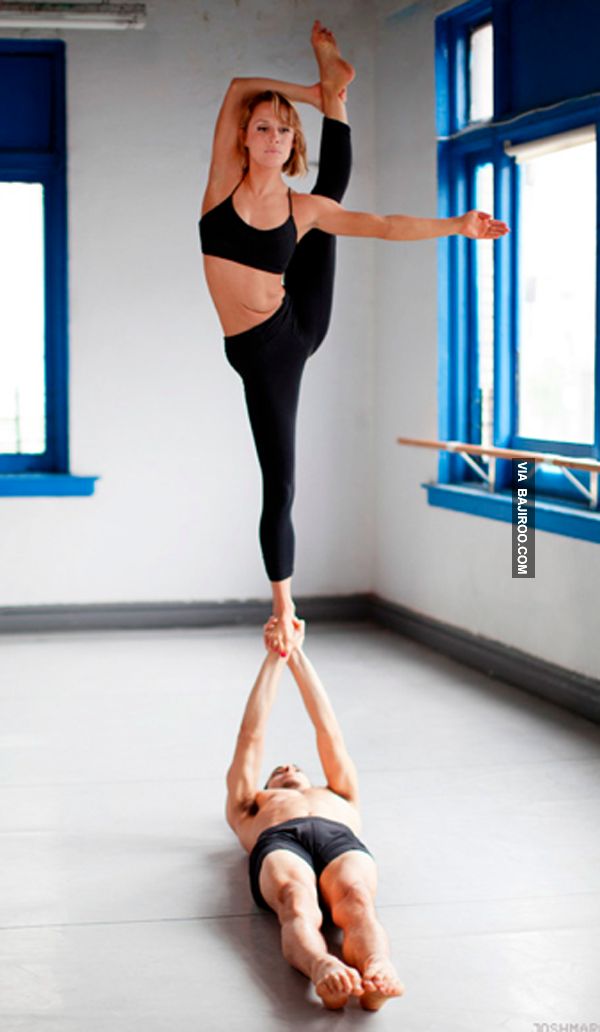
Yoga Alliance insurance for RYTs is available. This coverage is available to RYTs only if you have the RYT designation. There are several tiers of RYT certification. There are also specialty level credentials, which require further education. For insurance to be valid, teachers must have current RYT certifications. Yoga Alliance members are eligible for insurance. Click here to read more about RYT-insure.
NACAMS provides affordable liability insurance for over 350+ disciplines. Customers can get proof of insurance when they purchase a product. Membership benefits include identity protection as well as free access to the NACAMS website. Access to exclusive discounts on different products is also possible. There are two types of insurance offered by the company: professional and student. Pricing is not included in the wording of the professional insurance. The former is not recommended. For students, the same coverage is available for classes that are held by a professional.

Yoga Alliance insurance covers different activities and tasks. A Yoga Alliance instructor can have a general and professional liability policy, while a beYogi Yoga teacher can get both a personal liability and professional policy. A general coverage covers accidents that might occur in the classroom or while teaching students. The professional liability coverage covers student reactions to the products and/or services they sell. The coverage for product liability is limited to $2 million annually.
Yoga Alliance's yoga liability program insurance rates are $183 per year and $233 per annum, respectively. The membership fees are $80 and $53, respectively. The policy is available to both individuals and businesses. The costs for the annual insurance plan are not significant. An individual member can have access to thousands of resources as well as connections with fellow educators. Moreover, the insurance plan is provided by Lloyds of London, which is an independent company. These are the best options available for anyone who wants to insure their business for the future.
Alliant can provide insurance coverage for up to eight hours per week for full-time and part-time members. Part-time members can also get the same policy for a small fee. Additional coverage is available through beYogi’s professional policy, which covers multiple locations. A comprehensive insurance policy provides peace of head and covers every eventuality. There is no reason to worry once you are protected. Apply online today to get your full coverage in minutes.

You have two options depending on your specific needs: liability or health insurance. An instructor who is a yoga teacher full-time will need insurance. A part-time teacher can get personal coverage. The best policy for your business is the one that you choose. There is no reason to risk your health. There are many ways to save money when you purchase insurance. There is no reason not to feel safe or prepared. You will be covered with the right insurance
FAQ
What does butter do?
Butter is one of the best sources of saturated fats. This type of fat contributes to healthy skin, hair, and stronger bones.
Butter also contains vitamin K, which prevents bleeding from cuts and bruises. Vitamin K works together with vitamin C to prevent bruising.
Butter also contains minerals like calcium, phosphorous and potassium. These elements are good for teeth and bones.
However, butter has some drawbacks. Butter is high in cholesterol. Some studies show that consuming too much cholesterol may increase the risk of developing cardiovascular disease.
Butter is also high-fat, which can contribute to obesity and increase cholesterol.
You can spread butter on bread if you are forced to use it. Bread absorbs more oil than potatoes or pasta.
What dietary supplement is best for weight loss?
You need to exercise and diet in order lose weight. Some people find certain supplements helpful.
Studies have shown that omega-3 fatty acid may be beneficial in weight loss. Omega-3 fatty acids are essential fats that are vital for brain function, cell membrane integrity, and other functions. They can be found in seafoods like salmon, tuna or shrimp, as well as cod liver oil.
Another study suggests that green-tea might help with weight loss. Green tea contains catechins. These antioxidants may be able to increase metabolic rate and encourage weightloss.
Is it true, that too much protein can cause kidney stones?
Protein helps to maintain healthy bones, tissue, and skin. Too much protein can cause calcium to be excreted through the urine. This can lead kidney stones.
Not everyone who eats more than 2g of protein per kilogram (2.2 lbs) of bodyweight will get kidney stones. It is possible to eat high levels of protein without developing kidney stones.
You can prevent kidney stones by watching your sodium consumption. Sodium is important for maintaining the body's water balance. Too much sodium can lead to kidney stones.
If you have kidney stone, you might also consider reducing your protein intake. For most people, protein provides half their daily caloric requirements. You'll lose weight if you reduce your intake of protein.
If you do decide to eat more protein, don't go overboard. Limit your intake to 20% of your total daily protein intake.
What's a good workout plan for 7 days?
A seven-day exercise plan should include cardiovascular training (running/biking/swimming), strength exercises (using weight machines, free weights) and one flexibility/core program (yoga or Pilates). Each activity should be done at least once per week. Each session should not take more than 45 mins.
Cardiovascular Exercise: Running, Biking, Swimming
Your goal is to exercise at least 60 minutes each week. For best results, aim for 75 minutes per week. Cardio exercise can improve blood flow and stimulate muscle development.
Strength Training
While cardio exercises target the heart and lungs, strength training targets the muscles and bones. Strength training increases lean muscle mass and helps to burn calories even at rest.
Flexibility and Core Workouts
Core and flexibility exercises are great ways of strengthening your whole body. Both yoga and Pilates can be great choices.
Egg is good for you?
All nutrients are contained in the egg. It also helps maintain strong bones, a healthy heart and lungs, and stable blood pressure.
Eggs are an excellent source of protein, vitamins A, B12, D, E, K, calcium, phosphorus, iron, zinc, copper, magnesium, selenium, and riboflavin.
The egg yolk contains high levels of cholesterol. However, it doesn't contain saturated fat. Eggs have less saturated fat than many other foods.
They are also low-calorie and high in sodium. They can also be prepared in many different ways. You can cook them in many ways, including poaching, boiling, hard-boiling, baking, and scramble.
They are delicious and very easy to prepare.
Two whole eggs should be eaten each day. You should eat eggs if you are allergic to them.
Essential nutrients are found in eggs. Consider adding eggs to your daily meal plan today.
Is Cardio Better Than Strength Training?
Both are equally beneficial. But cardio is a much better choice if you want to gain muscles faster.
Cardio burns more calories in a minute than strength training and more fat.
Strength training increases muscle mass but takes more time than cardio.
Is it possible to go to the gym every day of the week?
You can go to your gym seven days a semaine, but not simultaneously. You have to find a time where you can do this without feeling too exhausted and drained.
This will help you stay motivated and keep you energized for other activities.
It is important to eat right during these times. This will ensure you don't feel tired and sluggish when going to the gym.
Last but not least, ensure there are no other people competing for your time. If you have children, it is a good idea to avoid going to school on the evenings as they can distract from your workout.
Statistics
- By John Thompson Take a whopping 38% off a set of PowerBlock Pros. (menshealth.com)
- An estimated calorie range for moderately active adult males falls between 2,200 to 2,800 calories per day, depending on age. (eatright.org)
- Get free shipping and 25% off today. (healthline.com)
- Candidates and applicants must pass all four tests at 70% (minimum level) to graduate from Basic Deputy U.S. Marshal (BDUSM) Training. (usmarshals.gov)
- According to the American Academy of Dermatology (AAD), men over 50 are at a heightened risk of developing it. (healthline.com)
External Links
How To
How can I burn fat while exercising?
Exercise helps you lose calories by increasing your metabolism and oxygen intake.
You'll lose weight safely if you exercise at moderate intensity.
These tips will help you burn fat and keep fit while exercising.
-
Cardio exercises include swimming, running or cycling.
-
Three times per week, exercise for 30 minutes.
-
You can lose weight by adding strength training to the routine.
-
Avoid intense workouts. It's possible to build muscle, but not lose it.
-
Keep hydrated during exercise. Water is essential for flushing out toxins and keeping your body hydrated.
-
After exercising, consume low-fat protein smoothies. Protein shakes are great for your muscles and energy.
-
Smaller meals are better for you.
-
Don't skip breakfast! Skipping breakfast can lead to fatigue and sluggishness.
-
Take care to your mental well-being. Stressful situations can slow metabolism.
-
Keep a positive attitude. Studies show that overweight people are more likely to be obese than those who perceive themselves as attractive.
-
Get enough rest. You will have a harder time losing weight if you do not get enough sleep.
-
Active living is key. Keep moving every hour.
-
Maintain a healthy diet. You will feel fuller longer if you eat right.
-
Find ways to relax. Tenseness can cause stress hormones to break down muscle tissue.
A balanced diet includes all essential nutrients needed for growth and development.
You should eat six small meals per day rather than three large ones. This gives your body the time it needs to process what you've eat.
To maintain strong bones, you need to consume 500 mg of calcium each day. Calcium can also be found in milk products, yogurt, fortified Soy beverages, orange Juice, cereals and bread.
Calcium is found in leafy green vegetables and beans, tofu as well as nuts, seeds, cheese, and seeds.
Vitamin D is required by the body to absorb calcium. Vitamin D is found in eggs yolk, fatty fish and fortified foods.
Vitamin E is crucial for skin health. Vitamin E is found in vegetable oils and wheat germ oil, as well as peanuts, almonds and sunflower seeds.
Your body requires zinc for normal immune function and wound healing. Zinc can be found in seafood, legumes and meats.
Zinc deficiency can cause fatigue, loss of appetite, depression, and impaired immunity.
Sugar intake can lead to insulin resistance which causes blood glucose levels to rise. Insulin resistance leads to weight gain.
Insulin resistance is caused by high blood levels of free-radicals. Free radicals can be molecules with unpaired electrons that cause damage to cell membranes.
The main sources of free radicals are food additives.
Free radical damage can cause cancer, heart disease and diabetes, as well as arthritis, asthma, and other diseases.
Antioxidants are essential for preventing free radical damage. Antioxidants protect against oxidative damage.
Vitamin C is found in citrus fruits and beta carotene is found in carrots.
Selenium, manganese (and zinc) are other antioxidant nutrients.
Selenium is known to protect cells from the oxidative damage that free radicals can cause. Selenium may be found in Brazil nuts as well tuna, liver and kidneys. It can also be found on shrimp, cod, turkey, beef lamb, pork, chicken, and other foods.
Copper protects eyes, brain, lungs and red cells. Copper is found in shellfish, poultry, meat, and organ meats.
Manganese plays an important role in bone structure. Manganese is found as a component of bone structure in brown rice (spinach, bananas), prunes, raisins and oatmeal.
Zinc is important for healthy growth, reproduction, and wound-healing. Zn can be found in lean cuts, white fish, poultry, eggs, and other foods.